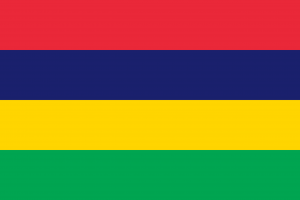Language/Morisyen/Vocabulary/Education
Hi Morisyen learners! 😊
In this lesson, we'll be focusing on education-related vocabulary. Learning about different education systems and vocabulary can not only help you communicate better when talking about education but also give an insight into different cultural and societal practices worldwide. As always, feel free to ask any questions in the comments section below, or find native speakers on Polyglot Club and ask them any questions you may have!
Education System[edit | edit source]
In Morisyen, the formal education system includes a primary and secondary level of schooling. Primary schools enroll children from ages 5 to 11, while secondary schools educate students between 12 and 17 years old. After completing secondary education, one can go on to tertiary, vocational or technical studies based on their interests and career plans.
Vocabulary Related to Education[edit | edit source]
Here's a list of Morisyen vocabulary related to education. Practice saying these words out loud and memorizing them to improve your Morisyen skills!
Basic Education[edit | edit source]
| Morisyen | Pronunciation | English Translation |
|---|---|---|
| Lekol Primè | lekól pʁime | Primary School |
| Lekol Sekonder | lekól sekôdé | Secondary School |
| Basye | basy | Basic |
| Lank | lãk | Board |
| Dizon | dizõn | Decision |
| Serman | seʁman | Sermon |
| Risèr | rizêʁ | Ruler |
| Kreyon | kʁejon | Crayon |
| Tablo | tablo | Blackboard |
Higher Education[edit | edit source]
| Morisyen | Pronunciation | English Translation |
|---|---|---|
| Lekòl Superyèr | lekòl superye | Higher Education |
| Fakilte | fakilte | Faculty |
| Inivèrsite | iniveʁsite | University |
| Depatman | depatman | Department |
| Diplòm | diplòm | Diploma |
| Enstriksyon | ẽnstrikʃõn | Instruction |
| Bilten | bilten | Bulletin |
| Rechèch | ʁeʃɛʃ | Research |
Miscellaneous[edit | edit source]
| Morisyen | Pronunciation | English Translation |
|---|---|---|
| Not | not | Grade |
| Santimèt | sãtimɛt | Centimetre |
| Grad | gʁad | Degree |
| Klas | klas | Class |
| Komisè | komise | Commissioner |
| Labo | labo | Lab |
| Vakans | vakã | Vacation |
| Eksamen | eksamẽ | Exam |
To see some of these words in context, here is a dialogue:
- Person 1: Lekol inivèrsite-la finn dir mwa pou mo bizin sey ansam avek bann lot etidyan pou ena plis echanz. (The University's faculty asked me to work with other students for more exchange.)
- Person 2: Ki vakans ou pou swiv? (Which vacation are you going to follow?)
- Person 1: Mwa pou swiv vakans Pask. (I'm going to follow Easter vacation.)
Useful Phrases[edit | edit source]
Here are some useful Morisyen phrases you can use when talking about education:
| Morisyen | Pronunciation | English Translation |
|---|---|---|
| Eski ou pe red mwa sakinn ?. | ɛski wu pẽn rod mwa saʁkin | Can you explain to me something? |
| Monn need ed ou monn gete sa | mõn ni dɛ wu mõn gɛt sa | I didn't understand that, can you explain? |
| Monn resi fini travay la | mõn resi fini travẽ la | I finished that work. |
| Monn pa fini gete tout | mõn pa fini gɛt tut | I didn't understand everything. |
| Ki enstriksyon-la ? | ki ẽnstrikʃõ-la | What are the instructions? |
| Kisannla pou forme ek mwa? | kisanla pu fɔm ek mwa | Who is going to work with me? |
Education Around the World[edit | edit source]
Did you know that:
- In Finland, students don't start school until the age of 7, and they have no homework until they are teenagers.
- In Japan, students clean their classrooms and school buildings themselves as part of their education.
- In Brazil, there is a tradition called "Dia do Estudante" (Student's Day), celebrated on August 11th. Students wear uniforms and participate in parades and cultural events.
Learning about education practices in different parts of the world can broaden your perspective and understanding of the importance of education in various cultures.
Conclusion[edit | edit source]
That's all for today's lesson on Morisyen education vocabulary! We hope you enjoyed learning something new today! Practice the vocabulary and phrases we went over today, and don't be afraid to explore different education practices worldwide. To improve your Morisyen Vocabulary, you can also use the Polyglot Club website. Find native speakers and ask them any questions!
➡ If you have any questions, please ask them in the comments section below.
➡ Feel free to edit this wiki page if you think it can be improved. 😎
Sources[edit | edit source]
With this lesson finished, you may want to explore these additional pages: Feelings and Emotions & Drinks.

